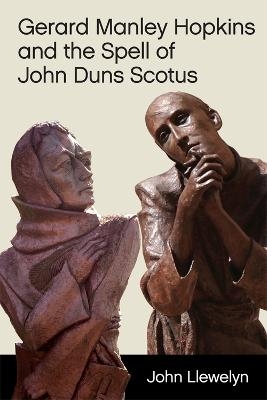
Gerard Manley Hopkins and the Spell of John Duns Scotus
Seiten
2015
Edinburgh University Press (Verlag)
978-1-4744-0894-3 (ISBN)
Edinburgh University Press (Verlag)
978-1-4744-0894-3 (ISBN)
Why did the 19th century poet and self-styled philosopher Gerard Manley Hopkins find metaphysics of 'formal distinction' so appealing? John Llewelyn answers this question by casting light on various neologisms introduced by Hopkins and reveals how Hopkins endorses Scotus' claim that being and existence are grounded in doing and willing.
The early medieval Scottish philosopher and theologian John Duns Scotus shook traditional doctrines of universality and particularity by arguing for a metaphysics of 'formal distinction'. Hundreds of years later, why did the 19th century poet and self-styled philosopher Gerard Manley Hopkins find this revolutionary teaching so appealing? John Llewelyn answers this question by casting light on various neologisms introduced by Hopkins and reveals how Hopkins endorses Scotus' claim that being and existence are grounded in doing and willing. Drawing on modern responses to Scotus made by Heidegger, Peirce, Arendt, Leibniz, Hume, Reid, Derrida and Deleuze, Llewelyn's own response shows why it would be a pity to suppose that the rewards of reading Scotus and Hopkins are available only to those who share their theological presuppositions.
The early medieval Scottish philosopher and theologian John Duns Scotus shook traditional doctrines of universality and particularity by arguing for a metaphysics of 'formal distinction'. Hundreds of years later, why did the 19th century poet and self-styled philosopher Gerard Manley Hopkins find this revolutionary teaching so appealing? John Llewelyn answers this question by casting light on various neologisms introduced by Hopkins and reveals how Hopkins endorses Scotus' claim that being and existence are grounded in doing and willing. Drawing on modern responses to Scotus made by Heidegger, Peirce, Arendt, Leibniz, Hume, Reid, Derrida and Deleuze, Llewelyn's own response shows why it would be a pity to suppose that the rewards of reading Scotus and Hopkins are available only to those who share their theological presuppositions.
John Llewelyn (retired) was Reader in Philosophy at the University of Edinburgh and Visiting Professor of Philosophy at the University of Memphis and Loyola University Chicago.
| Zusatzinfo | Illustrations |
|---|---|
| Verlagsort | Edinburgh |
| Sprache | englisch |
| Maße | 156 x 234 mm |
| Gewicht | 385 g |
| Themenwelt | Literatur |
| Geisteswissenschaften ► Philosophie ► Metaphysik / Ontologie | |
| Geisteswissenschaften ► Philosophie ► Philosophie des Mittelalters | |
| Geisteswissenschaften ► Sprach- / Literaturwissenschaft ► Anglistik / Amerikanistik | |
| Geisteswissenschaften ► Sprach- / Literaturwissenschaft ► Literaturgeschichte | |
| Geisteswissenschaften ► Sprach- / Literaturwissenschaft ► Literaturwissenschaft | |
| ISBN-10 | 1-4744-0894-X / 147440894X |
| ISBN-13 | 978-1-4744-0894-3 / 9781474408943 |
| Zustand | Neuware |
| Haben Sie eine Frage zum Produkt? |
Mehr entdecken
aus dem Bereich
aus dem Bereich
Buch | Hardcover (2024)
Matthes & Seitz (Verlag)
CHF 41,90
Über konstruktivistisches Denken in der Theologie
Buch | Softcover (2024)
Verlag Herder
CHF 79,95


